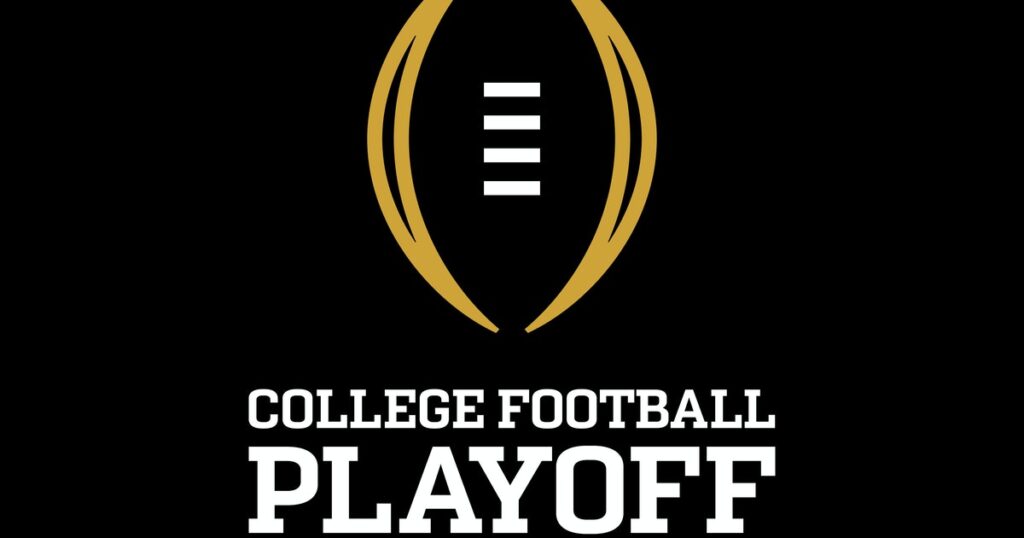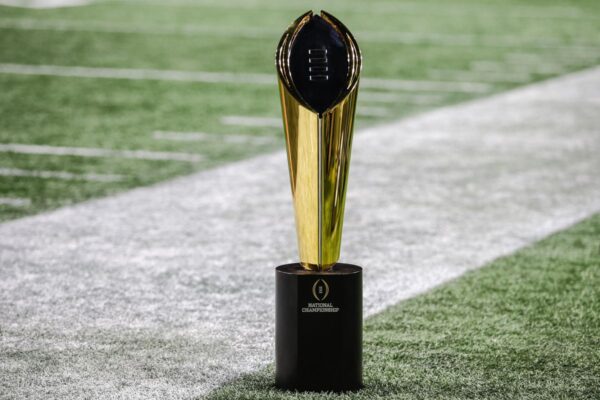EVT Opinion: The new college football playoff system is a sham

Credit: NCAA

The original bowl system for college football was one of the greatest rackets in sports history. By making it lucrative for bowl organizers, college administrators created a consistent stream of income and prestige for their universities that effectively set up two tiers among the schools in the Football Bowl Subdivision (FBS).
As perfect as the bowl system was at creating and maintaining the gap between the “haves” and “have nots,” greed knows no limits, so the Bowl Championship Series (BCS) was created in 1998. The one problem the BCS presented is it cut against the main argument for the existence of the bowl system: tradition.
The public argument for keeping the bowl system, which created the success on and off the field for the power conferences, was that it was an inheritance from the previous generation, and changing it would take away from the rivalries that make college football special. If the BCS could be created, however, why not blow the whole cartel up and create an equal system for everyone?
The answer to this problem was to grant access to a BCS bowl to one team outside of the power conferences. For the first time, teams like TCU, Boise State, and Utah were allowed to take the field against the supposedly invincible teams from the elite conferences. When the smaller schools emerged victorious, public outcry emerged to allow further inclusion. Something needed to be done to ensure the competitive imbalance remained intact.
The main threat to the Power Five syndicate was a transparent selection process that could not be manipulated if the results did not come out “correctly.” Enter the College Football Playoff (CFP). Replacing the BCS in 2014, the CFP eliminated the computers and the polls as the final deciders for inclusion and gave that power to a committee, mimicking the one used to fill NCAA Basketball Brackets.
When the CFP was first proposed, one of the selling points was pointing to the 2009-2010 season when MWC champion TCU finished No. 4 in the final BCS rankings. “If the CFP had been in place, then,” hopeful fans of fairness in college football opined, “TCU would have been included in the playoff.”
What actually took place was like a cheap Hallmark movie. The committee kept the Group of Five champions tantalizingly close to a top-four ranking but ultimately left them at the altar in the end. The unfairness of the CFP even led the commission of the American Athletic Conference to long for the days of the BCS.
"I never thought I’d say this but if this continues, let’s bring back the BCS and the computers. Because it would be a fairer system than what I’m seeing now." -AAC commissioner Mike Aresco feels the CFP deck is stacked against his teams pic.twitter.com/4qWqiWZdHM
— Paul Finebaum (@finebaum) December 16, 2020
Against this backdrop, the news that college football is headed to a 12 team playoff should be met with cynicism. Until proven otherwise, the prevailing notion should be the new playoff was created to reinforce what the original bowl system created: wealth for a handful of universities and reinforcing the Myth of Power Five superiority.
The risk that came with the BCS and CPF was allowing the best from the non-autonomous conferences to play one of the powerhouses from the autonomous conferences. When the supposedly inferior programs met on a neutral field, the Group of Five more than held their own. Something needed to be done to re-establish the myth that the power conferences deserved their exalted status.
Enter the 12-team College Football Playoff (12-CFP). Much like they did when the CFP was adopted in favor of the BCS, proponents of the 12-CFP are pointing to the final standings in past years to show how the new system creates access to a national championship for all schools. Unfortunately, they are forgetting the lessons from the past. The old rankings will not be used in the new system. What the 12-CFP will likely do in practice is take away what the original BCS gave to the Group of Five: access to a New Year’s Six Bowl game.
Here are some of the details of the new playoff.
- The top six conference champions qualify for the tournament. Automatic bids to the playoff have been eliminated on paper. In theory, this would open the door for more than one Group of Five members to compete in the tournament.
- The top four ranked conference champions receive a first-round bye.
- Seeds 5-12 will play in the first round of the playoff, with the higher seeds hosting the lower seeds. In regards to hosting a playoff game, being a conference champion is immaterial.
No Group of Five champions will be among the top four seeds. Expect power conferences to adopt the Big XII model for determining their Conference Championship Game or eliminate the game entirely, justifying this change to accommodate the added game imposed by the playoff. Either change would guarantee a champion from outside of the Power Five will not be among the top four seeds.
As long as a committee is in charge of determining the seeds, No. 9 will be the highest a team like San Diego State could expect to receive. The result: in order to be in a New Year’s Six Bowl, the best Group of Five team will need to defeat a top-eight team on the road. Access to the playoff? Hardly. Could you imagine Alabama or Texas agreeing to play on the road against Michigan or Oregon in December for a chance to play in the Sugar Bowl?
Already, schools like SDSU rightly refuse to play “buy games,” where a team from the power conferences pays a school a million or more dollars to come to play on the road. The new system essentially guarantees a “buy game.”
Will a huge underdog from the Group of Five rise up and win a game on the road? Of course, but this will rarely happen, and when it does, it will be held up as justification for keeping the oligarchy of college football together. The most typical result will be a return to the good old days when only the elite in college football participates in the best bowl games.
If “access” and “fairness” were truly the aim, college football would establish a transparent criteria for inclusion that all schools could compete to win, and every playoff game would be played on a neutral field. Doing so would allow a school outside the traditional powers, like Gonzaga has done in basketball, to take its place among college football’s elite. Unfortunately, the new 12 team playoff is designed to prevent that from ever happening. It was created to keep the cartel in power.
My earliest sport’s memory involve tailgating at the Murph, running down the circular exit ramps, and seeing the Padres, Chargers and Aztecs play. As a second generation Aztec, I am passionate about all things SDSU. Other interests include raising my four children, being a great husband and teaching high school.